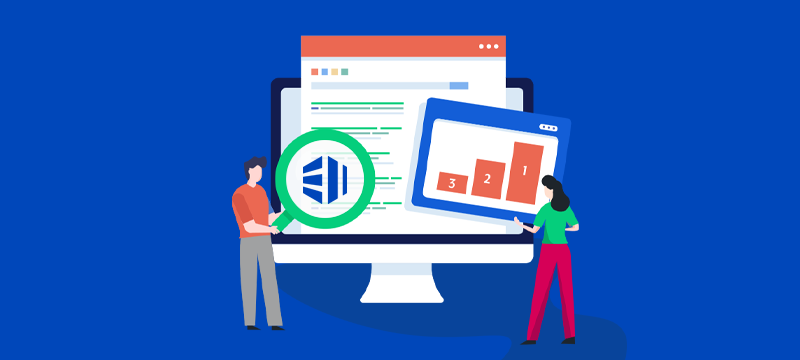If your website doesn’t rank well in search results, you are losing out on visitors and the sales they generate. It also leaves you relying on more expensive ways to generate traffic, such as pay-per-click advertising. To help, here we look at six common reasons for poor search engine performance and explain what you can do to avoid them.
- Your pages cannot be indexed
To be able to appear in search engine results, a web page must first be found and indexed by the search engine. This means that for your entire site to be available, all your pages need to have been indexed. The way search engines discover new sites and their pages is by sending out bots that crawl the internet. They work by jumping from link to link, mapping out your site and how the pages are interrelated.Unfortunately, some websites are configured in a way that prevents search engine bots from crawling the site. If you have a Google Search Console account, you’ll be able to find out if this is causing problems for you by checking for any crawl errors. If there are, you’ll know which pages on your site are affected and can make changes to make them indexable.
- Your website loads too slowly
Websites that load and respond slowly end up being doubly penalised. Firstly, you’ll find that visitors won’t hang around waiting for your site to load and, as a result, your bounce rates will increase and your sales will suffer. Over half of visitors will quit a website if it takes more than 3 seconds to load.If that’s not bad enough, search engines will downrank you too. Site speed is a key part of their ranking algorithm as they want to provide users with the best experience – and sending people to slow websites isn’t considered as offering a good experience.
The main reason a website performs slowly is that it doesn’t have the right hosting. Speed and performance rely on it having enough CPU, RAM and bandwidth to cope with all the visitors it is handling at any one time. You can trim the resources your website uses by minimising scripts, compressing data, optimising images and deleting unnecessary plugins, but ultimately, if your website is growing and getting more visitors, you may need to upgrade to a bigger hosting plan. For those on shared hosting, the best choice is to upgrade to VPS Hosting.
- Your website isn’t mobile-friendly
According to Statista, 60% of all UK online retail is now done through mobiles and mobile sales are predicted to reach £150 billion by 2025. Mobile phones are ubiquitous and ownership in the 16-24 age group is close to 100%. As most searches and online purchases are done on mobile phones, search engines include mobile friendliness in their search algorithms. They do not want to send mobile users to websites that don’t appear or function well on smartphone screens.For this reason, a responsive theme is a necessity if you want to rank better, but even some responsive themes still cause mobile-friendly issues. To check if your site is mobile-friendly or if it has issues, try Google’s Mobile-Friendly Test.
- Bad navigation
Poor navigation (menus, internal links, categories, etc.) makes it difficult for visitors to find what they are looking for on a website and this makes for a bad user experience. While visitors themselves are likely to show their annoyance by leaving the site quickly, search engines will also show their dislike with a downgraded performance in their results. Their bots will have crawled your site and will understand how well it can be navigated and if it doesn’t offer the kind of experience that they want their users to have, expect rankings to drop.To improve navigation, give categories relevant names, make sure products and posts are in the correct categories, ensure menus work and can easily be found, install a search bar and remove any broken links.
- The site is untrustworthy
The rise in cybercrime means search engines will not want to send any of their visitors to a website that could potentially cause them harm. For this reason, they are looking for verifiably legitimate sites. One of the most important things you can do is install an SSL certificate. This validates your domain or organisation and encrypts data sent between your users’ devices and your server. As a result of installing an SSL certificate, browsers identify your site as secure with a padlock icon, and search engines are more inclined to rank your pages.Additionally, search engines will look to see if your site displays your business name, physical address and phone number. It will also consider online reviews, particularly those on its own site, such as Google or Bing reviews.
- Availability issues
Search engines will keep track of how often a website goes offline, as this is a key signal of its reliability for its users. If there is regular downtime, this obviously has implications for how well it is going to rank in search results. Why would the search engine want to provide a link to a website that might not be there?There is a range of reasons why your site might go offline. This can include any maintenance you do to the site yourself, the impact of other sites on shared hosting plans or having an unreliable web host. Ideally, you should look for a web host that offers a minimum uptime guarantee of 99.9%.
Conclusion
As you can see, there are many reasons that can affect how your website performs in search engine results. Hopefully, the information provided here will help you understand some of the main causes of poor ranking and what you can do to resolve them. To see our full range of fast, reliable and secure website hosting solutions, visit our homepage.


